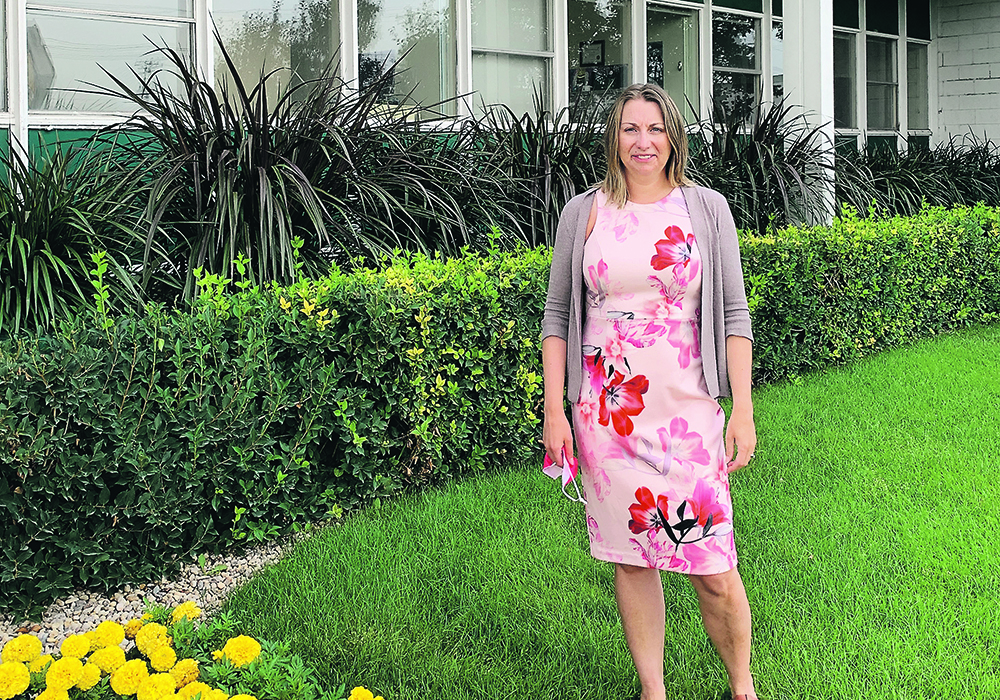Peak of the Market’s new chief executive officer has plans to change the Manitoba produce co-operative.
Pamela Kolochuk, who took over from Larry McIntosh, is a certified general accountant. She joined the cooperative as chief financial officer in 2017.
“The growers are the best thing about my job,” said Kowalchuk, who grew up on a dairy and grain farm near St. Claude, Man.
“They innovate and look for new things to do.”
Kolochuk wants to see Peak of the Market’s 14 Manitoba growers celebrated and have consumers recognize that the food they produce is locally grown. She said the co-operative can benefit from the consumer trend to buy local.
Read Also

Trump’s tariffs take their toll on U.S. producers
U.S. farmers say Trump’s tariffs have been devastating for growers in that country.
Peak of the Market plans to mark its 80th anniversary in 2022.
The co-operative also contracts with farmers in other provinces to supply some types of produce.
It sells more than 100 types of produce through grocery stores across Western Canada, some sold under Peak’s yellow diamond label and some repackaged as store brands.
About 250,000 pounds of produce is shipped daily from the Winnipeg. Another distribution centre operates in Calgary.
Kolochuk said about 40 percent of product is shipped to the United States, 25 percent is transported to Saskatchewan, Alberta and British Columbia, 20 percent stays in Manitoba, and 15 percent goes to Eastern Canada.
Red potatoes account for almost half of Peak’s total annual sales. About 67.5 million lb. of these popular spuds are shipped across North America each year.
Yellow potatoes trail their red counterparts in sales but make the best mashed potatoes, Kolochuk said, while russets are used for baking and fries. One grower is developing a sweet potato variety suited to Manitoba’s climate.
Recently, shoppers have been buying more acorn, butternut and spaghetti squashes, while carrots and onions remain as long-time staples.
Kolochuk said the COVID-19 pandemic has sparked an increase in sales.
“We’ve benefitted from more people eating at home, and eating more produce,” she said.
Sales into the U.S. continued because the border remained open for agricultural trade. These factors resulted in the co-operative’s highest quarterly sales occurring in 2020 and the trend is continuing.
Peak of the Market’s distribution centres were altered to ensure social distancing among employees. As well, personal protective equipment and sanitizer were provided. Kolochuk said most of the office staff have been able to work from home.
The current hot and dry weather in southern Manitoba has affected Peak of the Market’s growers. Water sources for irrigation are drawing down in some areas that depend on reservoirs.
“Water is the big thing,” Kolochuk said. “Because the ground is so hot, the (potato plant) leaves are cooking.” She added that rain is desperately needed to help tuber growth.
She commends vegetable growers for adopting sustainable growing practices. Peak of the Market has a research farm near Winkler, Man., where vegetable trials are conducted in conjunction with Agriculture Canada, Manitoba Agriculture and the University of Manitoba.
Kolochuk believes Peak of the Market plays an important role in Winnipeg, across Manitoba, and nation-wide as a food supplier to non-profit groups. It donates about three million pounds of produce annually.
The produce is deemed to be “ugly” or imperfect, but contains the same nutrients.
“Just because a carrot has three legs, it doesn’t mean it’s not nutritious,” Kolochuk said.
One popular community initiative is the Farm to School fundraiser. Although put on hold in the 2020-21 school year due to the pandemic and school closures, she said the program will run in the coming school year.
More than 100 schools and day-care centres usually sign up to sell bags of produce including potatoes, onions, parsnips and carrots. Half of the money raised is returned to the school or daycare, which normally amounts to about $250,000.
This year’s fundraiser will incorporate online ordering with the buyer indicating which school or day-care centre they are supporting.
“We are feeding bodies, minds and souls,” she said.















